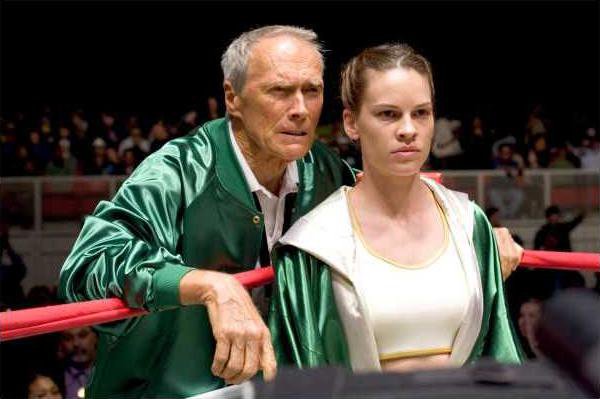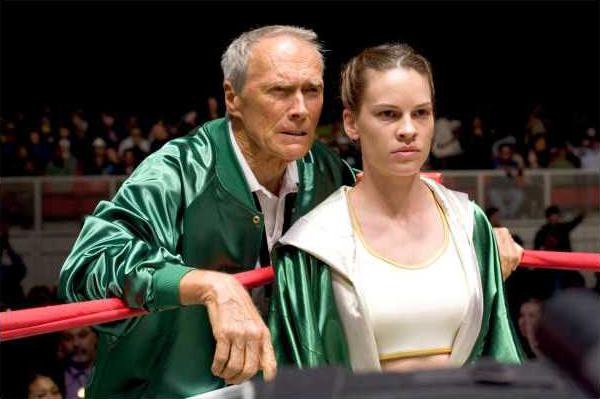Im going to reveal serious spoilers for two films: this summers romance Me Before You and 2004s Million Dollar Baby. If you dont want to know what happens in those films, youd be wise to skip this column. Id prefer, however, if you skipped both of those movies instead, as theyre based on the truly reprehensible moral premise that quadriplegics are better off dead.
As I discussed in a previous article, my oldest daughter suffered a spinal cord injury in a skiing accident in 2011, not long after her 14th birthday. Her injury was in the T12/L1 region of the spine, which means she did not lose any of her upper-body movement, but she is partially paralyzed from the waist down. She has limited motion and sensitivity in her upper legs and thighs, and it tapers off when you get down to her feet, which have no motion or sensitivity whatsoever. She is able to walk using forearm crutches and leg braces that stabilize her ankles.
True, her injury is nowhere near as severe as the one sustained by Will Traynor, the handsome young millionaire in Me Before You who is in a wheelchair and has no movement below his neck. But her experience has given us the opportunity to meet many people who deal with disabilities such as Will's. They do so with dignity and grace, and it is repugnant to think that their lives have so little value that suicide is the only acceptable option.
But to Hollywood, not only is suicide for quadriplegics acceptable, its also cause for celebration. How else can the Best Picture Academy Award for 2004s Million Dollar Baby be explained? In that movie, Frankie Dunn, the character played by star Clint Eastwood, euthanizes his protege after she breaks her neck in the boxing ring. Frankies decision goes against his own deep religious faith, yet this is supposed to be interpreted by the audience as a profound act of moral courage. It seems striking that a blow against religion and the disabled is a surefire way to win an Oscar.
Then again, maybe not. Me Before You had a 57 percent rating on Rotten Tomatoes at the time of publication, so its probably not going to win many awards. But Will Traynors insistence that his life is not worth living is the heart of the films narrative, and his successful suicide at the conclusion of the film is accomplished in order to give his caregiver/girlfriend a large inheritance that will allow her to live well, something that apparently only able-bodied people can do.
Liz Carr, a disabled actress and comedian, summed up the problem perfectly in comments quoted in The Guardian.
We have so few opportunities in the media to explore disability, she said. But there is a disproportionate number of stories which relate to the problem of disability being solved by death. Television and film seem to love those individuals who want to die. Theyre less keen to cover the rest of us who might want to live but are struggling to get the health and social care resources to do so.
It doesn't have to be that way. How many feel-good movies focus on the underdog, the outsider, the hero who overcomes insurmountable obstacles and comes out on top? Real people with disabilities are living that story every day, so why cant filmmakers translate that kind of heroism to the big screen? Weve seen enough about the individuals who want to die. Lets start telling the stories of those who want to live.
As I discussed in a previous article, my oldest daughter suffered a spinal cord injury in a skiing accident in 2011, not long after her 14th birthday. Her injury was in the T12/L1 region of the spine, which means she did not lose any of her upper-body movement, but she is partially paralyzed from the waist down. She has limited motion and sensitivity in her upper legs and thighs, and it tapers off when you get down to her feet, which have no motion or sensitivity whatsoever. She is able to walk using forearm crutches and leg braces that stabilize her ankles.
True, her injury is nowhere near as severe as the one sustained by Will Traynor, the handsome young millionaire in Me Before You who is in a wheelchair and has no movement below his neck. But her experience has given us the opportunity to meet many people who deal with disabilities such as Will's. They do so with dignity and grace, and it is repugnant to think that their lives have so little value that suicide is the only acceptable option.
But to Hollywood, not only is suicide for quadriplegics acceptable, its also cause for celebration. How else can the Best Picture Academy Award for 2004s Million Dollar Baby be explained? In that movie, Frankie Dunn, the character played by star Clint Eastwood, euthanizes his protege after she breaks her neck in the boxing ring. Frankies decision goes against his own deep religious faith, yet this is supposed to be interpreted by the audience as a profound act of moral courage. It seems striking that a blow against religion and the disabled is a surefire way to win an Oscar.
Then again, maybe not. Me Before You had a 57 percent rating on Rotten Tomatoes at the time of publication, so its probably not going to win many awards. But Will Traynors insistence that his life is not worth living is the heart of the films narrative, and his successful suicide at the conclusion of the film is accomplished in order to give his caregiver/girlfriend a large inheritance that will allow her to live well, something that apparently only able-bodied people can do.
Liz Carr, a disabled actress and comedian, summed up the problem perfectly in comments quoted in The Guardian.
We have so few opportunities in the media to explore disability, she said. But there is a disproportionate number of stories which relate to the problem of disability being solved by death. Television and film seem to love those individuals who want to die. Theyre less keen to cover the rest of us who might want to live but are struggling to get the health and social care resources to do so.
It doesn't have to be that way. How many feel-good movies focus on the underdog, the outsider, the hero who overcomes insurmountable obstacles and comes out on top? Real people with disabilities are living that story every day, so why cant filmmakers translate that kind of heroism to the big screen? Weve seen enough about the individuals who want to die. Lets start telling the stories of those who want to live.





